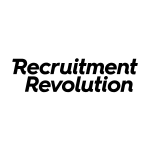The “do you have any questions for me?” moment is a crucial stage in any interview. While it is important for you to work out if the candidate will be suitable for the role and company, it is just as important for the company to be a good fit for the candidate or you’ll struggle to keep them. Where is the business headed? Is there enough scope for progression?
This is an invaluable opportunity for a candidate to find out a bit about what your career has looked like at the business. Do you feel happy there? Do you feel that you have been given the opportunity to progress? This will give them a great insight into what it’s like working at the company and what scope there is for progression. Top candidates will know that they are in demand and it’s just as important for them to be excited about the business and its direction as it is for you to be impressed by them.
It is crucial that you recognise the extra curiosity and scrutiny that an outstanding candidate will bring to an interview. At times it might feel like you are the one being interviewed, but this isn’t necessarily a bad thing.
Pay close attention to how the candidate receives your answers. Is their body language positive? Do they engage with your responses? Or does it look more like they’ve prepared the questions just to impress you, rather than a genuine interest in the business? Are they taking notes? Often, the way they respond to your answers can tell you just as much as the questions they’ve chosen to ask.
Here are a few of the questions that a top candidate might ask in an interview.
What would I be expected to achieve in my first six weeks and what metrics do you use to measure success?
This initial period is crucial for an employee in any job and can make or break their probationary period. Candidates who want to hit the ground running and contribute effectively and immediately will want to know exactly what’s expected of them and how you will measure that. This shows they are already visualising themselves in the role and trying to get into the right mindset.
What are the main goals of the company at the moment and how will this role contribute?
Questions like this show that the candidate isn’t just thinking about their role in isolation and is already looking at how they might be able to align themselves to the company’s growth as a whole. There is a glimpse of commercial awareness in the asking of this question. This can be a tricky quality to find in candidates so it’s important to recognise it straight away. It also shows a desire to do work of real value for the company, a great sign that they are self-motivated and keen to see the results of their work.
Can you tell me more about the team I’d be working with and where this role sits within that hierarchy?
They are thinking ahead to their day-to-day life at the company and how they will fit into regular operations. They want to know in advance who they will be surrounded by, who might be there to mentor them or even be mentored by them, Perhaps they are looking for a heads-up on any big characters to watch out for. The desire to know where the role sits within the hierarchy of the team hints that they are visualising how they might be able to progress at the company.
Tell me about the traits of your top performers.
Outstanding candidates want to contribute long term and be considered top performers themselves, so identifying the common attributes of your best employees will be important to them. Getting an insight into what is important to you and what works best in the company will help them achieve this.
It will also help them gain insight into the business and how it operates. What kind of attitudes and achievements does the business reward? Do these values align with their own? Your response to this question could give them a clear idea as to whether or not the business would be a good fit for them.

Has the company faced any big challenges recently and how were they tackled?
All businesses will inevitably face challenges in one way or another. Whether it’s a shift in technology, the economy or a new competitor; all businesses will have to rise to meet a challenge. The top candidates will want to know how the business is set up to adapt and how they’d fit into that structure. If the company is less willing to evolve, it will signal to the candidate that there’s less room for progression.
For extra points, the candidate might ask about a specific industry-related challenge that is relevant to the business. This shows commercial awareness and the fact that they’ve put the time in to prepare properly for the interview.
What challenges have previous employees in this role faced?
This shows that the candidate is realistic and knows that it is highly unlikely to be plain sailing all of the time. They are planning ahead and trying to anticipate some of the problems they might encounter. They may also be trying to avoid making the same mistakes as previous employees and developing the role.
Look closely at how they respond to your answer. This can tell you a lot about whether they believe they are ready or not for some of the challenges they might face during the role.
What attracted you to working at the company and what keeps you motivated after so long?
If you’ve been at the business a while, the candidate will recognise this as a great opportunity to find out more about the company, its culture and what motivates its staff. Be careful here. While the candidate is technically the one in the hot seat, if you’re already thinking about hiring them, retention should also be on your mind. Make sure you’re honest and don’t let the candidate go away with unrealistic expectations or you could be interviewing for the job again six months down the line.
If you haven’t mentioned how long you’ve been at the company and they ask this question anyway, it shows they’ve done their research beyond the role itself and have looked further into the business.
What are the training opportunities like at the company? Are these mostly internal or are there external courses available? How much time is dedicated to development?
As well as telling the candidate about their opportunities to progress, your answer will likely indicate how much the business prioritises the development of its employees. This should be a key factor for top candidates. They will, of course, want to develop their own skills and progress with their careers but factors like this can provide insight into the values of the business. How much is it willing to invest in individual employees? Does it encourage its employees to progress or are roles relatively static with long periods between promotions?
Are there any gaps in my experience or skill set that you’re concerned about?
This is a bold question showing that the candidate isn’t afraid of highlighting their weaknesses. In fact, they are looking for the opportunity to address those weaknesses head-on, showing a desire to improve.
They may very well know what your response is likely to be to this question and have prepared for it in advance. If they do not have all the qualifications or the number of years experience listed on the job spec.
Honesty and transparency are such crucial traits in candidates that they can often outweigh the downsides of not ticking all the boxes on the job spec.






